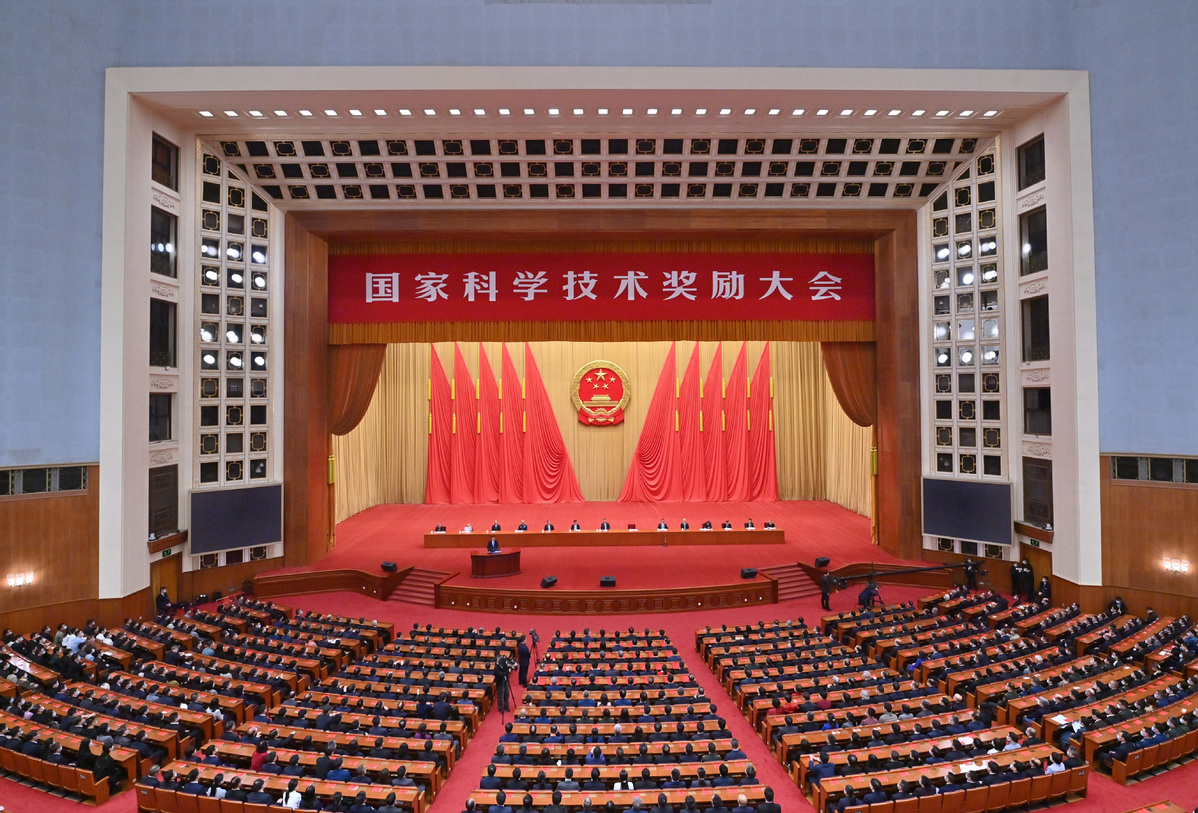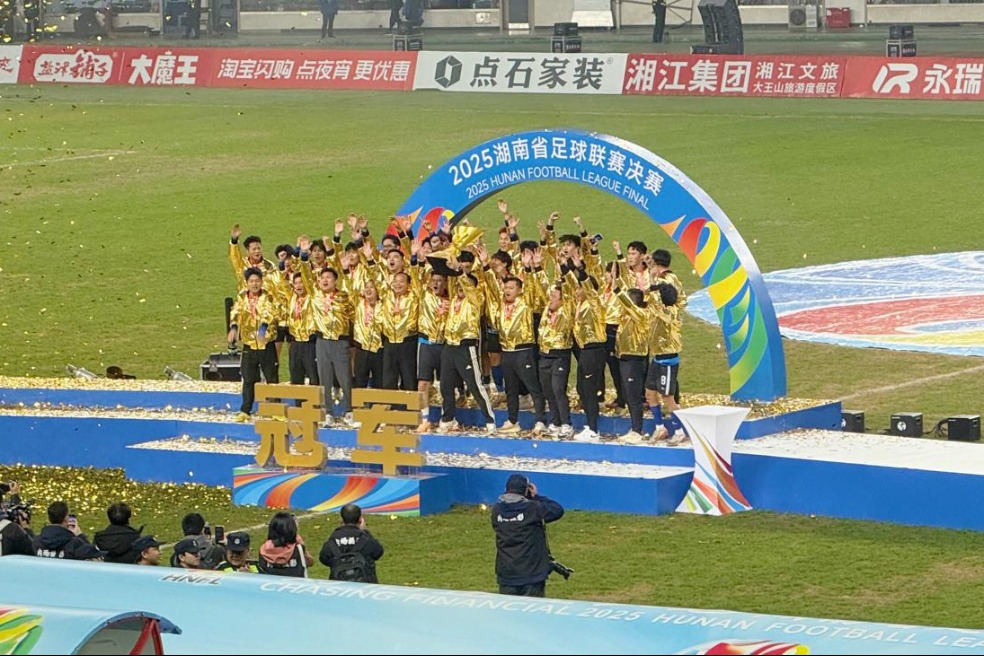2020 State science prizes showcase need for collaboration, openness


Last year's State Science and Technology Awards were more open and accessible to foreign scientists, and included the opening of the three main award categories to foreigners for the first time.
These included the State Natural Science Award, the State Technological Invention Award and the State Scientific and Technological Progress Award.
Last year, foreign scientists either led or participated in five award-winning projects in the three categories.
On Wednesday, China gave the 2020 International Science and Technology Cooperation Award-the nation's highest scientific honor for foreign individuals and institutions-to eight scientists from seven countries.
It was also given to the International Center for Tropical Agriculture, a research and development organization based in Colombia that is dedicated to reducing poverty and hunger. It was the third time the award had gone to an international organization.
The winners are not only noted experts in their respective fields-which range from clinical medicine to physics-but have also contributed considerably to facilitating international science cooperation, and to passing their expertise on to other promising scientists.
Richard Strom, a Dutch radio astronomer and a recipient of the cooperation award, said that he felt "extremely honored and very humble".
Strom has been collaborating with peers from the Chinese Academy of Sciences for about 30 years. He is the only foreign expert to fully participate in the Five-hundred-meter Aperture Spherical Radio Telescope project, also helping with site selection for the massive instrument in 1994.
"The collaboration with Chinese researchers has been of scientific, technological and educational value from the start. Through a joint exchange program, many young Chinese and Dutch students have learned from senior astronomers in both countries," he said. "In this way, we all have benefited."
"We very much look forward to more scientific cooperation with China in the future," he said. "Academic research moves forward most quickly when many scientists interact and communicate with one another freely, in a congenial and beneficial environment."
Dale Sanders, British botanist and director of the John Innes Centre, a world-leading plant and microbial research institute, said his collaborative research projects with Chinese colleagues had the potential to benefit global health and food security.
In 2014, China and the United Kingdom established the CAS-JIC Centre of Excellence in Plant and Microbial Science. It is based in Beijing, Shanghai and Norwich, in England.
The JIC also collaborates closely on wheat and pea genomics with the Chinese Academy of Agricultural Sciences and the Agricultural Genomics Institute in Shenzhen in Guangdong province.
Sanders said the institute's collaborative work on understanding how plants used in traditional Chinese medicine are effective in preventing and treating disease is a good example of international cooperation.
"This is cutting-edge science as we unpick the plants' metabolisms, and is potentially very important as new treatments might emerge," he said. "Chinese medicine is a great treasure house and should be diligently explored and improved upon."
Sanders said he sees a bright future for China-UK research collaboration, including on agricultural productivity, public health and environmental protection. "We are stronger together than apart," he added.
"We must all ensure that our work together strengthens the scientific excellence of both nations," he said. "But we must also recognize that our success comes with a responsibility to share the benefits with society in the UK, in China and globally."
- Liaoning fire: Report urges legal action against restaurant operator and seven others
- Historical Han Dynasty slips go on display in Hohhot
- Shanghai unveils steps to build sci-tech innovation corridor in Yangtze River Delta
- Xiangchao concludes with Yongzhou claiming championship
- Answers
- CPC leadership meeting urges steadfast implementation of eight-point decision on improving conduct





































